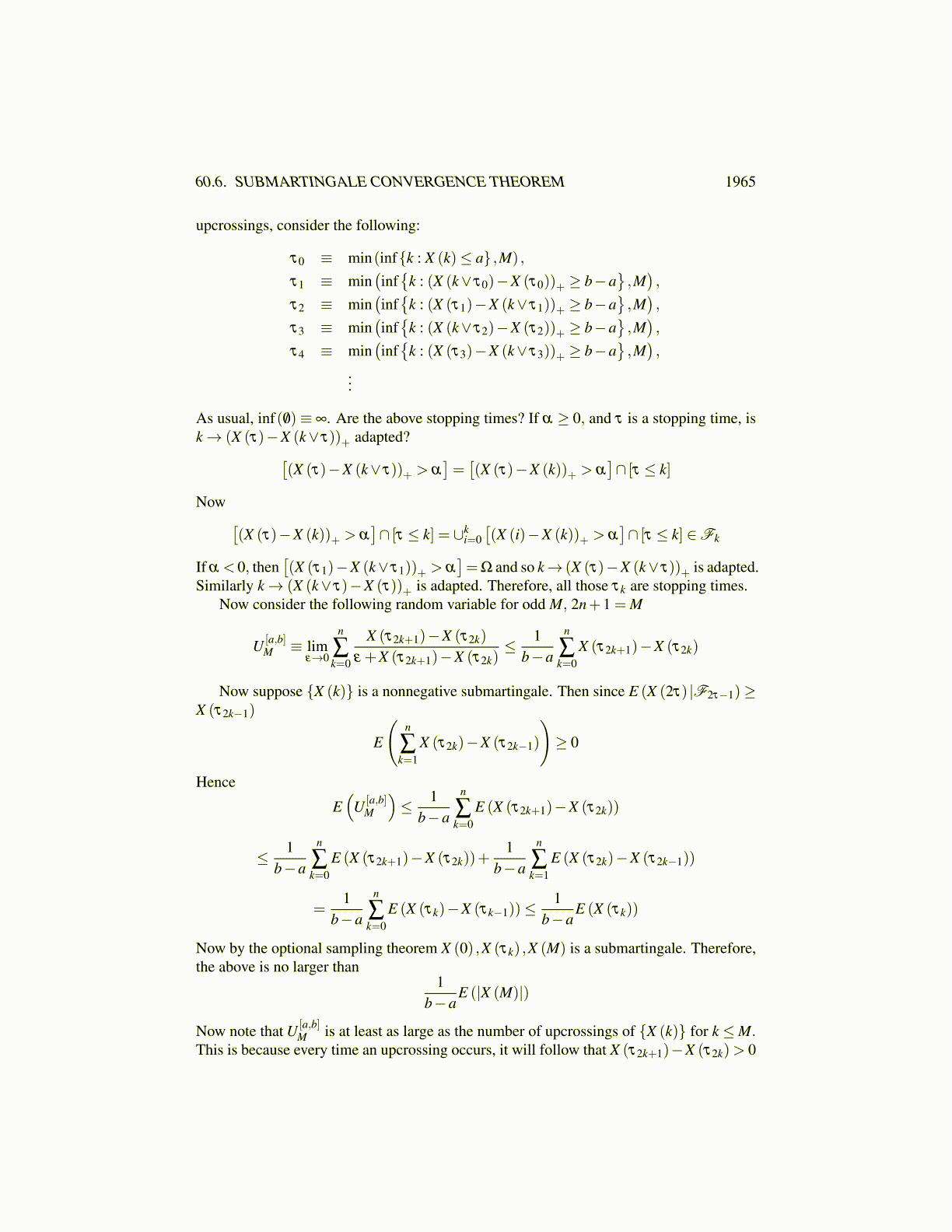
60.5. OPTIONAL STOPPING TIMES AND MARTINGALES 1965
Lemma 60.5.5 Let {X (k)}∞
k=0 be a submartingale adapted to the increasing sequence ofσ algebras, {Fk} . Then there exists a unique increasing process {A(k)}∞
k=0 such thatA(0) = 0 and A(k+1) is Fk measurable for all k and a martingale, {M (k)}∞
k=0 such that
X (k) = A(k)+M (k) .
Furthermore, for τ a stopping time, A(τ) is Fτ measurable.
Proof: Define ∑−1k=0 ̸= 0. First consider the uniqueness assertion. Suppose A is a process
which does what is supposed to do.
n−1
∑k=0
E (X (k+1)−X (k) |Fk) =n−1
∑k=0
E (A(k+1)−A(k) |Fk)
+n−1
∑k=0
E (M (k+1)−M (k) |Fk)
Then since {M (k)} is a martingale,
n−1
∑k=0
E (X (k+1)−X (k) |Fk) =n−1
∑k=0
A(k+1)−A(k) = A(n)
This shows uniqueness and gives a formula for A(n) assuming it exists. It is only a matterof verifying this does work. Define
A(n)≡n−1
∑k=0
E (X (k+1)−X (k) |Fk) , A(0) = 0.
Then A is increasing because from the definition,
A(n+1)−A(n) = E (X (n+1)−X (n) |Fn)≥ 0.
Also from the definition above, A(n) is Fn−1 measurable, consider
{X (k)−A(k)} .
Why is this a martingale?
E (X (k+1)−A(k+1) |Fk)
= E (X (k+1) |Fk)−A(k+1)
= E (X (k+1) |Fk)−k
∑j=0
E (X ( j+1)−X ( j) |F j)
= E (X (k+1) |Fk)−E (X (k+1)−X (k) |Fk)
−k−1
∑j=0
E (X ( j+1)−X ( j) |F j)
= X (k)−k−1
∑j=0
E (X ( j+1)−X ( j) |F j) = X (k)−A(k)